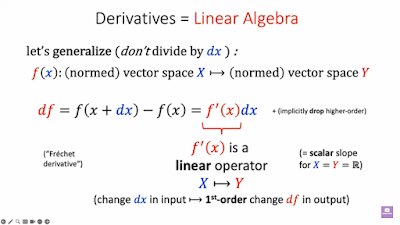On Wittgenstein's Notion of Private Language
A few clips of a discussion on Wittgenstein's private language argument. The discussants include Stephen Mulhall and Denis McManus with the host Shahidha Bari. ...
Clip from this BBC programme: Free Thinking: Could there be a private language?
Shahidha Bari investigates Wittgenstein's response to scepticism and discusses what it means for how we should think about ourselves and our relationship with others.
I have only listened to the first four and a half minutes or so, but I was put in mind of Putnam's Meaning and Externalism:
At 7:22 those sensations, for me at any rate, are always identified with things I've learned through reading about them. But whether I am "right" or not in making those identifications I cannot say. Thinking of the intense feeling of despair that I felt a few weeks ago and a book by Hammond Innes which I read as a child where he describes the feeling of hearing his HM Prison Dartmoor door slamming after he has received a sentence of 25 years. I think that was the moment I learned the meaning of the word despair. See from 5:42 in John Searle on Philosophy of Language:
Subscribe to Philosophy Overdose.
In summary, I would much rather listen to two American philosophers, John Searle and Hilary Putnam discussing this! Maybe I should listen to the whole thing though, and see what Shahidha Bari makes of it all.
Here's something I wrote to Markus Kuhn on July 14, 2022:
From chapter six of Brouwer's Life Art and Mysticism: see https://eternaldoorman.blogspot.com/2022/07/david-lynchs-weather-report_14.html
These insights break through as immanent truth in the science of culture. Once alchemy and astrology were cases of such a disturbing breakthrough; modern chemistry and astronomy are just slaves of culture like any other branch of natural science.
In any of these cases, however, the breakthrough of truth always moves the center of gravity back again from the observed to the observer: Copernicus moved the rotation of heavenly bodies down to earth, one day it may well be placed in man’s own body.
Kant replaced the study of the properties of things by that of the human head, man becoming aware of categories. Positive, quantitative properties are again and again replaced by polar ones; for example, in the new theories of electricity and light: Newton’s theory of color analyzed light rays in their medium, but Goethe and Schopenhauer, more sensitive to truth, considered color to be the polar splitting by the human eye.
And something Hannah Arendt said in this interview in 1964, I think, came to mind re experiment and theory: https://youtu.be/dVSRJC4KAiE?t=3711 she says "Alles denken ist nachdenken --- der sache nachdenken"
I don't know how accurate the English translation is, but it explained to me why I made so much intellectual progress after I went to live in Bolivia. One's experiences are so totally different in that culture that it rearranges the intellectual furniture in a very pleasing and refreshing way. It comes highly recommended by me. It's just such a pity that you have to lose intellectual contact with all your former colleagues as soon as this happens.



Comments
Post a Comment